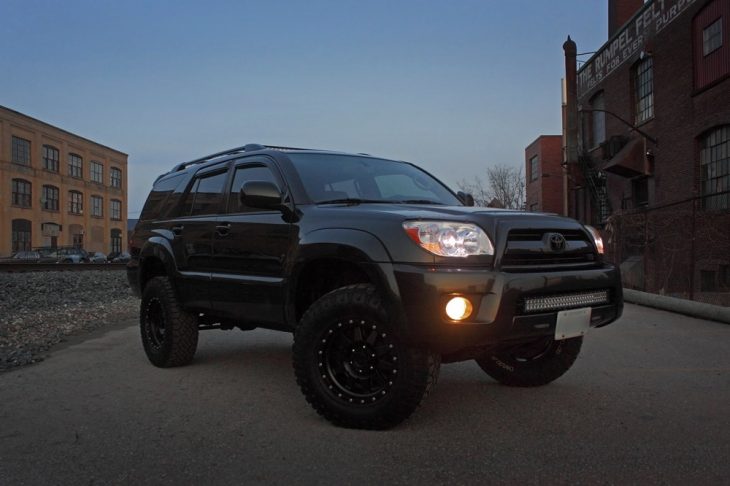As you have probably heard, there is a new lawsuit pending against Toyota Motor Corporation concerning their 4Runners from the fourth generation. The plaintiffs who have joined it so far allege that the vehicles are defective, making Toyota 4Runners dangerous to drive, as they can easily cause a severe car accident. This article will offer you answers to the most critical questions regarding the ongoing lawsuit against Toyota, as well as the safety of these vehicles.
For What Reason Was This Lawsuit Filed Against Toyota?
The frames of Toyota 4Runners manufactured between 2003 and 2009 are susceptible to premature rust corrosion, which can cause numerous issues for owners, from essential parts of the vehicle falling off to horrific car accidents. Dana Holding Corporation, the manufacturer of the frames, is blamed for failing to treat the frames against rust corrosion adequately.
On December 6, 2018, a class-action lawsuit was filed against Toyota Motor Corporation and multiple subsidiaries by Gary Weinreich of South Carolina. The man had purchased his 4Runner in 2005, and in 2011, he was told by a mechanic following a thorough inspection that there was “severe and excessive” rust on the undercarriage and on the drive shaft transmission of his car. In 2017, upon taking his automobile to a repair shop for brake replacement and oil change, Weinreich was once again informed that his automobile had “excessive frame corrosion.”
However, what prompted Weinreich to take legal action against Toyota Motor Corporation was the car accident he suffered in May 2018. The front steering control arm of his 4Runner broke off, which caused the man to run off the road. The man represents himself and the many other owners of defective Toyota 4Runners in the ongoing lawsuit against the company.
How Many Car Owners Have a Defective Toyota 4Runner?
Toyota Motor Corporation sold 585,705 4Runners in the United States between 2003 and 2009. All of these vehicles have the issue of premature rust corrosion of the frame, which means that owners should expect to experience it sooner or later, especially if they live in a state that has primarily cold weather. What speeds up the rusting of the frame in the wintertime is road salt, treatments such as liquid calcium chloride, sand, moisture, and snow. Usually, a properly treated car frame will not show signs of rust corrosion for 15 years or longer after your buy it new. Nevertheless, Toyota 4Runners from the fourth generation can begin to rust within only 5 years following purchase.
What Toyota 4Runner Models Should I Avoid Purchasing?
What is certain is that Toyota 4Runners manufactured between 2003 and 2009 have premature rust corrosion of the frame. For this reason, we advise you against purchasing one. These are the models that are the subject of the ongoing lawsuit. Nonetheless, a significant number of owners claim that this issue affects 4Runners made between 2009 and 2011.
Have Other Toyota Models Been Found to Have the Issue of Frame Rust Corrosion?
Surprisingly, yes. This is not the first lawsuit that was filed against the company regarding the problem of excessive rust corrosion on the frames of their vehicles. On October 3, 2016, another class-action lawsuit was filed against Toyota Motor Corporation by Ryan Burns of Arkansas. They alleged that Tacomas, Sequoias, and Tundras were prone to premature rusting of the frame. In 2020, the company agreed to settle the lawsuit for $3.4 billion, which was spent on fixing the affected vehicles, namely those manufactured between 2004 and 2008.
Has Toyota Issued a Recall on the 4Runners with Defective Frames?
Unlike the lawsuit settled in 2020, after which Toyota Motor Corporation recalled millions of Tacomas, Sequoias, and Tundras, the company has not issued any recall concerning the 4Runners manufactured between 2003 and 2009. However, the plaintiffs in the current lawsuit are adamant the Toyota announces a recall. They claim that the company had been aware of rust corrosion for years but failed to take any action to solve it.
Do Authorities Know About the Issue of Frame Rust Corrosion of Toyota 4Runners?
On August 17, 2018, the National Highway Traffic Safety Administration opened a rigorous investigation of Toyota 4Runners made between 2002 and 2006 after receiving multiple complaints from owners of defective vehicles. This agency also helped Weinreich take his complaint to the next level, as the man had filed a defect petition with National Highway Traffic Safety Administration before filing the class-action lawsuit against Toyota. Unfortunately, very few car owners know about defect petition, which, once submitted, prompts the authorities to take your problem way more seriously and to open a complex investigation eventually. During the past decade, only 43 defect petitions were filed.
What Is the Stance of Toyota on the Allegations Brought Against It?
Despite the myriad of complaints Toyota received from displeased 4Runner owners and the lawsuit pending against it, the company still claims innocence and refuses to admit to any wrongdoing. Although it agreed to settle, Toyota Motor Corporation had the same attitude during the 2016 lawsuit involving Tacomas, Sequoias, and Tundras. The company attempted to free itself of the current lawsuit, as it asked for a motion of dismissal in May of 2019, arguing that “the plaintiff fails to establish any legitimate claims against the automaker.” Nevertheless, several months ago, Toyota spokesman Eric Booth said, “The safety of our customers is a top priority. While we cannot comment on these specific claims at this time, we will respond in the appropriate forum.”
Should I Cease Driving My Toyota 4Runner If It Has Frame Rust Corrosion?
Yes, you should stop driving your 4Runner if your mechanic told you that the frame of your car has excessive rust corrosion. This is a severe problem, as the frame is the primary structure that supports the vehicle. Consequently, if it is severely damaged by rust, it will fail to protect you in a potential accident. Furthermore, it can easily cause a horrific car accident, as one of the key components of your vehicle can fall off while you are driving, causing you to lose control of your car and injure yourself, the passengers, other drivers, or pedestrians.
The injuries you and the other people involved in a car accident can sustain may be fatal, particularly if you were not wearing your seatbelt. Some of the most serious injuries you can experience following a car accident that involves a defective 4Runner are loss of limbs, fractured bones, soft tissue injuries, paralysis, spinal cord damages, internal bleeding, herniated disc, as well as psychological injuries, which can take a heavy toll on the quality of your daily life. Therefore, it is highly recommended to never drive a 4Runner with severe rust corrosion on the frame.
If You Have a Defective Toyota 4Runner, You Can Also Join the Lawsuit
If you had the misfortune of purchasing a Toyota 4Runner from the fourth generation and your car now has excessive rust corrosion on the frame, we have good news for you. Since the company is responsible for having manufactured the vehicles with defective frames, it will help you replace your car frame free of charge if you file a claim. The cost of a frame replacement is approximately $15,000, which is a lot for many 4Runner owners. Suppose the issue of rust led to you suffering a car accident. In that case, you can join the lawsuit against Toyota Motor Corporation to recover financial compensation for your medical expenses and lost wages.
About the author:
Since 2010, Gregory Cade has been the principal attorney of Environmental Litigation Group, P.C. The law firm specializes in product liability. Gregory Cade has a solid scientific background. He has a Bachelor of Science degree in Natural Science and Mathematics with emphasis on Chemistry and Biology and a Master of Public Health degree in Occupational Health, Safety, and Industrial Hygiene.









